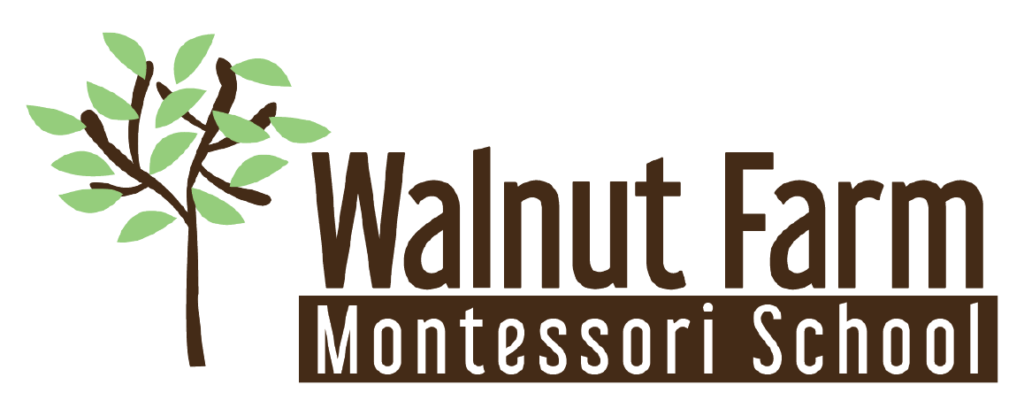September 2021 Primary Newsletter Article
We hope you have been enjoying your child’s experience as they embark on their new school year. It is a special child who gets to go to an accredited Montessori school. This newsletter we focus on the idea of independence for the child written by Jamie Van Horn.
“The essence of independence is to be able to do something for one’s self. Adults work to finish a task, but the child works in order to grow, and is working to create the adult, the person that is to be. Such experience is not just play…it is work he must do in order to grow up.” -M. Montessori
If you get the chance to observe a Montessori classroom you will see a room full of children mainly working independently. Independence in Montessori is a goal. As my son used to say, “Self do it!” I learned that doing for my child only hindered his growth and possibilities and said to him, even if not aloud, ‘you can’t do it’. Ouch! It is through the work/lessons that children gain their autonomy with tasks that teach them to dress, strengthen their fine and gross motor skills, teach about community with lessons in grace and courtesy, and so much more.
So, what is work? We have well over 200 lessons on the shelves at any one time. Imagine what that might be like for a child just entering the classroom for the first time. The child is to learn what they can and can’t do right from the start, a lesson unto itself. All the lessons come with a presentation by the teacher, the guide who connects the child and the work. This takes patience to wait for lessons – another lesson unto itself. All the children are on their own path of learning in the classroom, and while some children can work together on a task, their skillset will be different.
For a beginning child, learning how to dress and undress might be their work. It is not unusual for a child to come into their classroom, immediately go to the bathroom with their bag, and change their clothes, not because they have to but because they want to. Other children might be learning how to sit in circle for a whole 15 minutes without interrupting the speaker. Still others are multiplying 4-digit numbers with the Bank Game to create larger numbers. Work is subjective to the child and having the freedom to choose their own work helps create independence.
As parents, allowing your child to do for themselves and giving them the time to do so, is a gift they will take with them into their lives. Slowing the life train takes a commitment from you. It means saying no to overbooking the family. It means spending the weekends with family and friends who enrich your lives. It means waking up a little earlier to allow the transition from dreaming to classroom a meaningful one with purpose and responsibility. Routines can help your child with expectations and give them a sense of peace and autonomy.
Montessori school taught me a lot about letting go and allowing my children to make mistakes and that being a mom wasn’t going to be neat and tidy. I did have that innate feeling that I was supposed to allow my children to do for themselves as much as possible, but I also was a very attached mom. I slept with my children until they were in school. I nursed way longer than my friends. I carried them around in a sling for what seemed like forever. Come to find out, those acts of attachment only made them stronger and feel safe enough to take a chance.
But it was Montessori that gave them the foundation of loving to learn and seeking to find answers to questions and not being afraid to speak up or out in healthy conversations. It gave them the organizational skills to create a space where learning was easier and spacious and full of possibilities. It showed them they had choices and those choices had consequences, good or bad. It gave them fierce independence with a conscious backbone rendering them some of the best citizens in their peer groups. Are they perfect? No, but they sure are amazing humans with all kinds of questions and the bravery to find the answers. They are amazingly independent. I leave you with another quote I found in my Montessori handouts. It doesn’t have an author, but it is worth sharing.
“What children need most if they are to achieve their potentiality are adults united in the certainty of their faith that children have within them the power of their own self-construction; humble enough to believe that children have an enormous capacity to develop into beings far superior to ourselves; diligent In the creation of environments that will nurture them; courageous enough to give freedom to the individual child while being strong enough to set limits for the group until spontaneous social cohesion takes place; honest enough to identify qualities in ourselves that may hinder our abilities to see the child clearly or act supportively; patient enough to let the child unfold according to his own personal development trajectory and hopeful as we wait for the child to reveal himself. We are gardeners who lovingly tend the soil and watch as each bud opens – to reveal a ‘rose’, a ‘lily’ or even a ‘Venus fly-trap’!” -unknown author
Peace,

